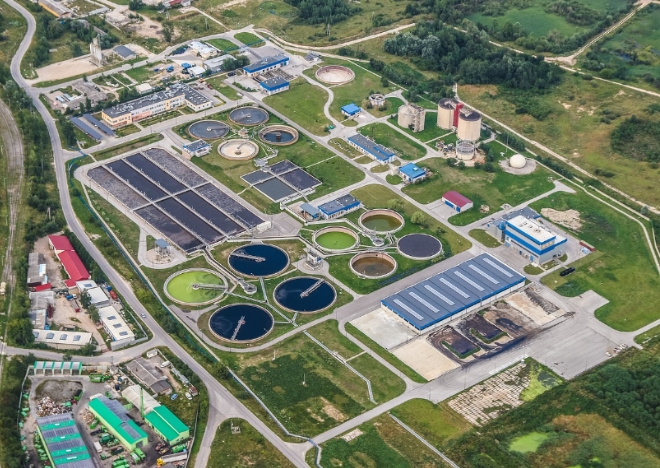As urbanization accelerates in Thailand, the importance of municipal wastewater treatment systems is increasingly evident. These systems play a critical role in protecting public health, preserving the environment, and building a foundation for sustainable development.
Pre-treatment: The first step in wastewater treatment is pre-treatment, which aims to remove larger solid debris to prevent blockages or damage to downstream equipment. Screens are essential pre-treatment devices, effectively intercepting plastics, branches, paper scraps, and other large debris in wastewater. Depending on the treatment needs, coarse or fine screens can be selected.
Biological Treatment: The treatment of organic matter in wastewater relies on biological degradation technologies, with stable aeration as the key. Blowers and aerators supply oxygen in biological treatment tanks, promoting the breakdown of organic matter by microorganisms. The energy efficiency and noise control of these devices are particularly critical for wastewater treatment plants located in urban areas.
Advanced Technologies: Membrane Bioreactor (MBR) systems and Dissolved Air Flotation (DAF) systems are widely applied in the advanced treatment stages. MBR systems can separate fine suspended solids and pathogens from water, ensuring high-quality effluent. DAF systems, using dissolved air technology, efficiently remove grease and solid particles, making them ideal for large municipal wastewater treatment plants.
Water Quality Monitoring: PH/ORP controllers monitor the pH and oxidation-reduction potential of wastewater in real-time, ensuring process stability. Their precise control capabilities are especially important when handling varying concentrations of pollutants.
Storage Equipment: PE tanks, stainless steel tanks, fiberglass reinforced plastic tanks (FRP), and Glass-Fused-to-Steel tanks (GFS) are used for storing wastewater, treated sludge, and chemicals. Depending on the requirements, corrosion-resistant, easy-to-clean, and durable materials are selected for long-term storage.
Solid-Liquid Separation: Three common solid-liquid separation devices are screw press dehydrators, plate-and-frame filter presses, and belt filter presses. These devices efficiently remove water from sludge, reducing its volume and lowering treatment costs.
Additionally, treated sludge is transported via sludge pumps to storage facilities or further processing equipment. The performance of these pumps directly affects the efficiency and stability of sludge treatment.
Water Reuse: As awareness of water conservation increases, water recovery technologies are gaining importance. Reverse Osmosis (RO) systems and Electrodeionization (EDI) systems are applied in wastewater reuse stages, providing high-purity recycled water for industrial and municipal use. These systems alleviate water scarcity issues and support sustainable urban development.
Thailand Wastewater Equipment Sales


